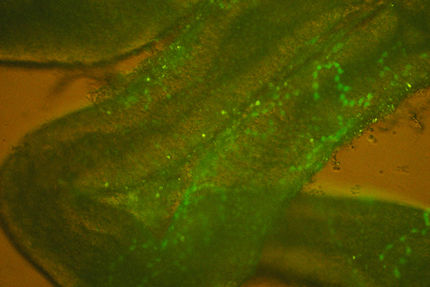Court Determines that University of Pittsburgh and Artecel Have Sole Rights to Adipose-Derived Stem Cell Patent
Advertisement
Artecel, Inc., announced that the patent inventorship litigation concerning the foundational, composition-of-matter patent covering stem cells isolated from adipose (fat) tissue has been decided in favor of Artecel's licensor, the University of Pittsburgh and against Cytori Therapeutics' licensor, the University of California ('UC'). Such stem cells are one of the most promising kinds of adult stem cells, easily obtained from patients and able to develop into many different tissue types. The Court determined that only the two scientists at Pittsburgh, Dr. Adam Katz and Dr. Ramon Llull, were inventors, and that Dr. Marc Hedrick and other UC scientists were not inventors. As a result of this decision, UC and Cytori have lost their rights to the patent covering adipose-derived stem cells. Any commercial activities involving these stem cells in the United States - either under existing business agreements or under other patents relating to the uses or applications of these stem cells - will likely be affected by this decision.
The Court's decision caps a litigation that has lasted more than three years, involving extensive discovery and a lengthy trial, and follows two important interim court rulings in February 2007 and August 2007, both decided in favor of Artecel's licensor (Pittsburgh) and against Cytori's licensor (UC). Artecel believes the Court's decision was correct, thoroughly considered, and based upon an extensive supporting record of both fact and law. The case was heard in the United States District Court for the Central District of California, and was entitled University of Pittsburgh of the Commonwealth System of Higher Education v. Marc Hedrick, et al (No. CV04-9014 CBM (AJWx)). The litigation was to determine who the inventors were in regard to stem cells isolated from adipose tissue: Drs. Katz and Llull, the Pittsburgh scientists, or Dr. Hedrick and the UC scientists, or both groups.
The Court's decision was that only the Pittsburgh scientists were the inventors, and that Dr. Hedrick and the other UC scientists were not inventors. As a result, only Pittsburgh and its exclusive worldwide licensee, Artecel, have rights in the composition-of-matter patent covering stem cells isolated from adipose tissue. Existing business agreements of Cytori or others relating to the US and involving the stem cells derived from adipose tissue are likely to be affected by the Court's decision. In addition, activities by Cytori or others to commercialize uses or applications of these adipose stem cells in the US under other patents are also likely to be affected. Other patents that relate to uses or applications of the adipose-derived stem cells cannot be practiced or used commercially without rights to the stem cells themselves. The stem cells themselves are covered by the patent in which the Court has ruled that only Pittsburgh and Artecel have rights.

















































